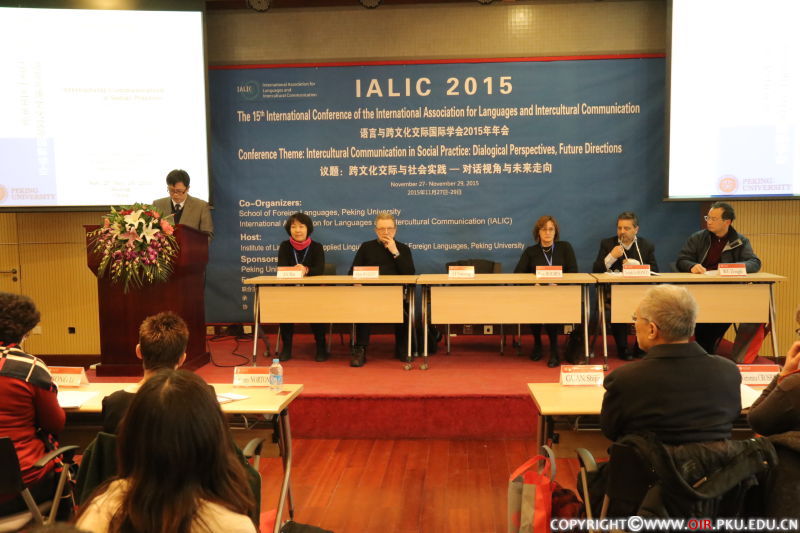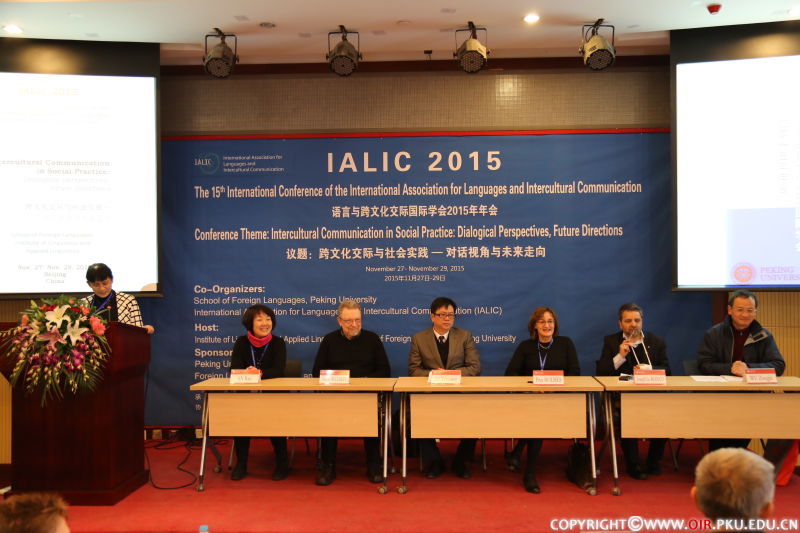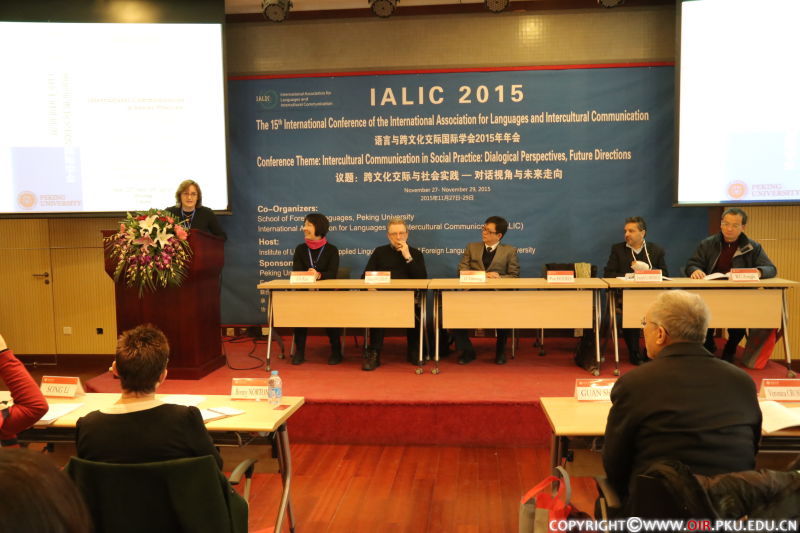On November 27, 2015, the opening ceremony of The 15th International Conference of the International Association for Languages and Intercultural Communication was held at the New Building of the School of Foreign Languages, Peking University. The conference is a three day event hosted by the Institute of Linguistics and Applied Linguistics and the PKU School of Foreign Languages; co-organized by International Association for Languages and Intercultural Communication (IALIC). This year, the topic of the conference is “Intercultural Communication in Social Practice: Dialogical Perspectives, Future Directions”.

The opening ceremony in the morning is hosted by Gao Yihong, Professor in the School of Foreign Languages. At the start of the opening, three distinctive guests gave their speeches: Li Yansong, Vice president PKU; Prue Holmes, Chair of IALIC; and Yang Lifan, Associate Chief Editor of the Peking University Press. Prue Holmes mentioned the objectives of IALIC when it first started in1999. As the different parts of world are involved in difficult challenges, IALIC provides intellectual inquires environment and critical attitudes toward injustice issues. Also, it improves intercultural understanding communication in order to addresses the social adversities. Yang Lifan emphasized that crucial role of languages in globalization. Also, intercultural interaction brings academic development and great importance in communication.

After the opening speeches, Joseph Lo Bianco, Professor of Language and Literacy Education at the University of Melbourne, Australia, gave a speech with the topic of “Facilitating Dialogue: Peace building and Language Policy in Conflict Zones in SE Asia”. The speaker first emphasizes that language is a main cause of conflicts. Professor Joseph has been investigating language and social cohesion in Malaysia, Myanmar, and Thailand. The list of countries above have something in common: they are all multiethnic countries and that have suffered from civil wars. In fact, the language problem has a long history, but scholars have not researched much of it. However, those countries with civil wars, their language planning (LP) directed by government is said to be a failure. Therefore, studies of conflict analysis are now made to look at how education, being the center role of language spreading, contributes to chronic conflict. More importantly, language policies should be emphasized more on the conflict mitigation.

With the aid of UNICEF, Professor Joseph works with the peace building workshop in three conflict zones. They facilitate dialogues interaction between various groups such as public officials, teachers, and the community where people are asked to reflect on their interpretations of problems and work on solving them together.
Written by: Sienna Luk

